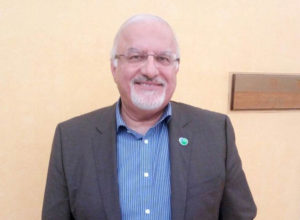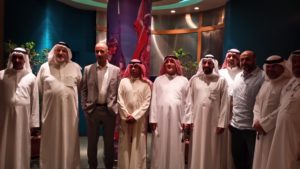Al Mousawi: Kidney purchase from abroad is a crime punishable under Kuwaiti Laws

The Chairman of the Kuwait Transplant society (KTS), Dr. Mustapha Al Mousawi, stressed Kuwait’s commitment to combat human organ trade and the nation’s involvement in the global movement to address this crime and to seek practical solutions that take into account the needs of patients.
Representing Kuwait at the Papal Science Academy Conference on (Human Organ Trafficking) that concluded its activities last Wednesday whilst under the auspices of Pope Francis, Al Mousawi said of his participation, speaking to Kuwait News Agency (KUNA), that is was part of the International Movement that was launched in 2005 to combat human organ trafficking.
He added “Kuwait has played an active role from the beginning by hosting a founding meeting in 2006 to crystallize this movement. Preparations for the Istanbul Conference were held in 2008. A representative of the Kuwait Society participated in organizing and coordinating its work, which resulted in the Istanbul Declaration and the recommendations of the World Health Organization in 2010, representing the international movement in this field.”
He stressed the important impact of the global movement, especially after the Istanbul Declaration, aiming curb this trade, which is based on exploiting the needs of the poor to acquire their organs or even steal them for sale to wealthy patients.
Clarifying he explained “Although it will be difficult to halt this trade as long as there is a huge shortage of available organs, as they represent a profitable trade for some doctors and non-professional hospitals and intermediaries run by organized crime in countries known for trafficking in human organs such as Pakistan, Egypt and China; the fact is that all countries of the world criminalize these immoral and inhuman practices.”
Al Mousawi emphasized that “most of the smuggling of trafficked organs takes place in hospitals that are not qualified, as their goal is limited to profit,” warning of the large and serious complications associated with such medical operations.
The Chairman of the Kuwait Transplant Society (KST), Dr. Mustapha Al Mousawi, pointed out that most of patients are unaware of the risks, especially those suffering from renal failure, and have warned them to travel to buy kidneys from abroad. This has serious and grave health consequences. The practice is criminal and is punishable by Kuwaiti Law and in the countries where it is conducted.
He pointed out that the best and most realistic solution to this growing phenomenon is to provide the organs to those in need in an orderly and transparent, so that patients do not have to resort to this option.
He added “The only way to provide organs to patients is through legal organ harvest after death of the contributor. Unfortunately, it is well known that the Middle East lags behind in Europe and North America in this field.”
He explained that the 1987 organ transplantation law of Kuwait criminalizes trafficking in organs, whether by buying or selling, and that the Kuwaiti Society for Organ Transplantation has adopted the Istanbul Declaration since its issuance in 2008. It addressed the Ministry of Health and the media to raise awareness in this regard.
Dr. Mustafa Al Mousawi praised the positions of Pope Francis, whom he met with a group of participating surgical professors, and was pleased with the interest the Pope expressed regards the issue of organ transplantation, which he regards as one of the modern forms of slavery. The Pope appealed to all religious, political and social leaders in the world to confront this practice in this spirit.

![IMG-20140125-WA0034_resized-300×198-273×180[1]](https://kuwaittransplant.org/wp-content/uploads/2017/06/IMG-20140125-WA0034_resized-300x198-273x1801.jpg)